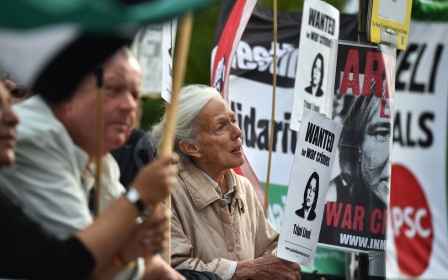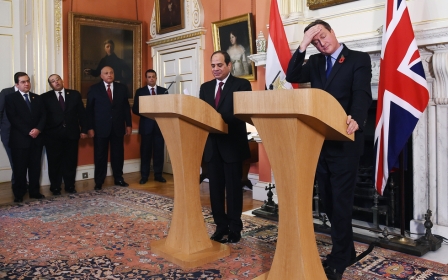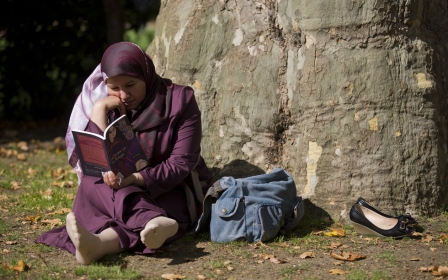In fighting Islamophobia, British Muslims need fairness not favours

Muslims across the UK are eagerly awaiting the publication of the much-anticipated Counter Extremism Bill. Prolific government statements throughout 2015 set out its intention to tackle the "extremist ideology" that apparently lurks behind "Islamist extremism".
The justifiable counter-concerns about yet further encroachments on Muslim civil liberties makes this as significant a political struggle as the Counter Terrorism and Security Bill at the start of 2015.
But there is a development on the horizon which promises to be every bit as significant to British Muslims, namely, the rolling out of the policy mandating all police forces to record Islamophobia as a category of crime from April 2016.
Put Islamophobia on par with anti-Semitism
It was the social policy think tank MEND which began the campaign to get local communities to push for the recording of Islamophobia as a separate category of crime in their 2012 manifesto for the first police and crime commissioner elections. Since then, MEND secured commitments from 10 police forces in England and Wales, almost a quarter of all forces, before the prime minister's announcement last year, building on MEND’s work, to require all forces to record Islamophobic attacks.
The Government's announcement and the impending rollout of new, improved recording mechanisms will put Islamophobia on par with anti-Semitism, in terms of better quantification of hate crime and analysis of criminal statistics relating to racist and religious hate crime affecting Muslim communities. It is a long time coming but the prospect on the near horizon is a significant one.
There are of course many things that will need to be done to ensure that the policy goes beyond adjusting police crime recording systems to introduce an "Islamophobia" crime flag. They include:
- Better training of law enforcement officers to correctly identify offences as "religiously aggravated" to avoid, as happens all too often under the current system, of Islamophobic hate crimes being mistakenly flagged as "racially aggravated". This inflates the "race" numbers and "deflates" the “religious” ones.
- Taking into consideration that victim perception of bias motivation will also be required to be ramped up, if the new recording mechanism is to improve the quality of officially available statistics on anti-Muslim hate crime.
- Emphasising the need for victims to report hate crime. Home Office analysis of police recorded crime data and the Crime Survey of England and Wales show that only 43 percent of hate crime offences came to the attention of the police in the most recent year analysed.
Tell Mama
In February 2012, the Communities and Local Government department announced a considerable amount of funding (£375,000) for the creation of Tell Mama, an entity that was to "measure anti-Muslim attacks". The initial seed funding was bolstered in November 2012 with a further tranche of £214,000, which is not small by any means.
Tell Mama claims to (i) provide support, assistance and signposting to victims of anti-Muslim incidents, (ii) work with the police to ensure prosecutions (iii), map, measure and analyse hotspots, and (iv) provide advice to mosques on safety and security.
These are undoubtedly laudable aims indeed but there is one problem: these services are already available to Muslim communities across the country in the form of the publicly funded Victim Support Service, UK police forces, third-party reporting centres, and the work of local councils on responding to hate crime. There is also support from local police force to mosques and other religious institutions which are targets of hate crime, including advice on security, and crime data analysis by local forces to provide extra patrols etc. Muslims for years have been crying out for fairness not favours, equality not exceptionalism – surely these are the rights of every UK citizen?
As such, with Islamophobia being recorded properly from April, the existing infrastructure is not only fit for purpose for all people including British Muslims, there is no need for Tell Mama at any level. Its demise in turn will put an end to accusations about Muslims receiving favourable treatment – indeed there are no such equivalent government-funded initiatives to record anti-Sikh or anti-Hindu crimes; those communities all rely on the existing legal framework, as should Muslims in my humble opinion.
Dubious links
There is another reason behind why many in the Muslim community have expressed serious concerns about Tell Mama’s attempts to be the voice of local communities on any discussion about policing and policy responses to anti-Muslim hate crime. Quite aside from the organisation being yet another example of the UK government's "top-bottom" approach to anything involving British Muslims, there is evidence of its links to perpetrators of Islamophobia that has warned off many who professed a sincere regard for tackling Islamophobia in the UK.
In July 2014, Tell Mama announced the results of its annual report on Islamophobia in the UK at an event organised by the infamous Quilliam Foundation. In July 2015, Fiyaz Mughal, the founder of Tell Mama, defended his group sharing a platform with Quilliam Foundation on the Left Foot Forward blog, stating:
“We will speak at any platform, (apart from extremist groups and those who have used prejudiced terms against whole communities)." One should dwell a little on Mughal's assertion more closely.
It is quite disturbing that an organisation that purports to “measure anti-Muslim attacks”, and which claims to desist from sharing platforms with "extremist groups and those who have used prejudiced terms against whole communities" can be so ignorant of the Quilliam Foundation's bedfellows.
Quilliam’s links to far-right extremists are well-known. You can read a transcript from the foundation's director, Haras Rafiq, getting grilled by MPs on the Home Affairs Select Committee about the organisation's links to the repellent Gatestone Institute on the select committee's website. An abridged version of the evidence hearing and the unconvincing responses from Rafiq about the organisation's "lack of credibility" can be read in this article by journalist Hilary Aked of Spinwatch.
Then there is the curious case of one of Tell Mama's advisors who has collaborated with someone else linked to the Gatestone Institute. Tehmina Kazi is an "advisor" on Tell Mama's board. Kazi has collaborated with Baroness Caroline Cox, a board member of the Gatestone Institute, on a publication endorsed by Cox which featured an article by yet another notorious Islamophobe, Anne Marie Waters. Waters, it would appear, is due to join "Tommy Robinson" (the former leader of the English Defence League) in the UK branch of the Islamophobic PEGIDA organisation.
The recording of Islamophobia by police forces in England and Wales as of April 2016 will hopefully meet two objectives: firstly, it will give local communities a voice in addressing local policing needs for victims of Islamophobic attacks, and secondly, it will effectively and inevitably render Tell Mama obsolete. From what has been uncovered of the group's blindness in the face of perpetrators of Islamophobia and extremism, this can come none too soon.
- Dilly Hussain is the deputy editor of British Muslim news site 5Pillars. He also writes for the Huffington Post, Al Jazeera English, and contributes to the Foreign Policy Journal and Ceasefire Magazine. He regularly appears on Islam Channel, Russia Today, and BBC TV and radio discussing Middle East and North African politics, British foreign policy, Islamophobia and the war on terror. Follow him on Twitter @dillyhussain88
The views expressed in this article belong to the author and do not necessarily reflect the editorial policy of Middle East Eye.
Photo: Protesters hold a banner reading 'No more mosque' during a demonstration by the UK branch of the German group 'Pegida' in the city centre of Newcastle upon Tyne, on 28 February, 2015 (AFP).
New MEE newsletter: Jerusalem Dispatch
Sign up to get the latest insights and analysis on Israel-Palestine, alongside Turkey Unpacked and other MEE newsletters
Middle East Eye delivers independent and unrivalled coverage and analysis of the Middle East, North Africa and beyond. To learn more about republishing this content and the associated fees, please fill out this form. More about MEE can be found here.





